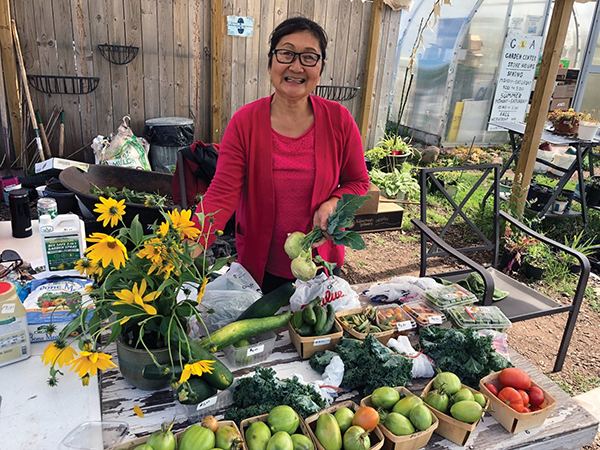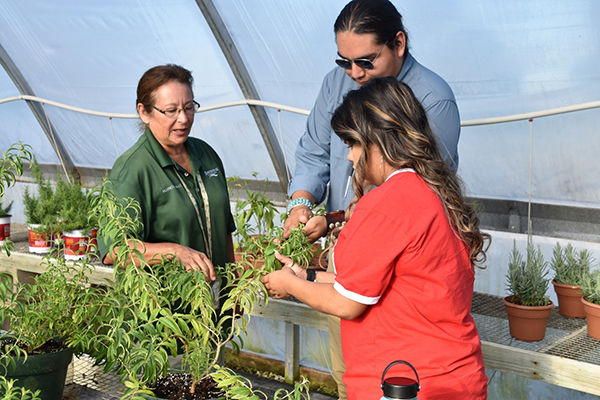August 2, 2021
USDA is committed to improving equity and access to its programs, including Federal crop insurance. This year, USDA’s Risk Management Agency (RMA), which oversees the national Federal crop insurance program, will invest $1 million in risk management education projects with trusted partners.
This is the reboot of an effort that invested $126 million in risk management education for historically underserved communities from 2002 to 2018. Historically underserved producers include socially disadvantaged producers, women producers, and others.
Many of the projects help ensure that farmers know how to plan for adverse weather, natural disasters, or a volatile marketplace. RMA hopes these educational opportunities build invaluable skill sets in communities that have historically lacked access to training and resources.
“Financial and human risk for farmers is greater for those who do not have access to tested and proven educational materials, instructors who have experienced the risk themselves, and a learning community of fellow farmers,” said Rich Pirog, Director of Michigan State University’s Center for Regional Food Systems—one of nine entities receiving funding from RMA. “This education provides tools and resources in a supportive environment.”

Farmers market in Houghton, Michigan, where Michigan State University’s Center for Regional Food Systems (CRFS) connects food businesses and other agricultural partners to work together to grow equitable local economies. CRFS received USDA funding this year to provide risk management education to historically underserved farmers in Southwest Michigan and the Upper Peninsula. Photo courtesy of Michigan State University Center for Regional Food Systems.
Risk Management Education Projects
In addition to Michigan, RMA is funding projects in several states, including California, Connecticut, Florida, Georgia, Maryland, Texas, and Washington. The training subjects range from utilizing tools for small-scale livestock producers in Florida to wildfire preparedness courses in California.
One RMA funded project provides training to Native producers nationwide. The Intertribal Agriculture Council, or IAC, and the University of Arkansas’ Indigenous Food and Agriculture Initiative, or IFAI, will partner to deliver risk management education to tribal communities.
“Nearly 80,000 Native agriculture operators produce over $3.5 billion worth of agricultural products each calendar year, yet there is a significant and unmet need for improved access to crop insurance and risk management products,” said IFAI Director Erin Parker. “This nationally focused project will fill this gap, providing relevant resources that increase Native producers’ access to critical risk management products that enhance the success of their operations.”

Beginning farmers receive training at the Native Youth in Food & Agriculture Leadership Summit, in Fayetteville, Arkansas. The annual event is hosted by the University of Arkansas’ Indigenous Food & Agriculture Initiative (IFAI). This year the organization received USDA funding to provide risk management education to Native producers. Photo courtesy of University of Arkansas School of Law Indigenous Food & Agriculture Initiative.
Determining Projects
In April, USDA leaders decided to restart the agency’s education program after a three-year hiatus. While welcomed by RMA, the agency had to move quickly to ensure these programs could start this year. RMA employees did an extraordinary job in a short amount of time to make the program a reality this year.
When determining which organizations received funding, RMA considered those with a proven track record of success using USDA funds to serve historically underserved communities, such as socially disadvantaged producers and women producers among others. While nearly all the agency’s past partners met this criteria, limited funding meant only a small number of organizations could be selected.
Additionally, administrative actions that would normally take months had to be completed in weeks. Nevertheless, a dedicated team of RMA’s outreach specialists met the challenge and turned things on a dime.
“It felt rewarding to approach universities and community-based organizations that have had successful programs in the past and asking them what they could do with this unexpected funding,” explained USDA Outreach Specialist, Cara McNab. “It will help limited resource and beginning farmers with the skills they need to succeed and access USDA resources.”
RMA plans to continue funding for risk management education projects in the future. To learn more, read the July 29, 2021 news release or visit RMA’s Beginning or Veteran Farmers and Ranchers webpage.
– Richard
